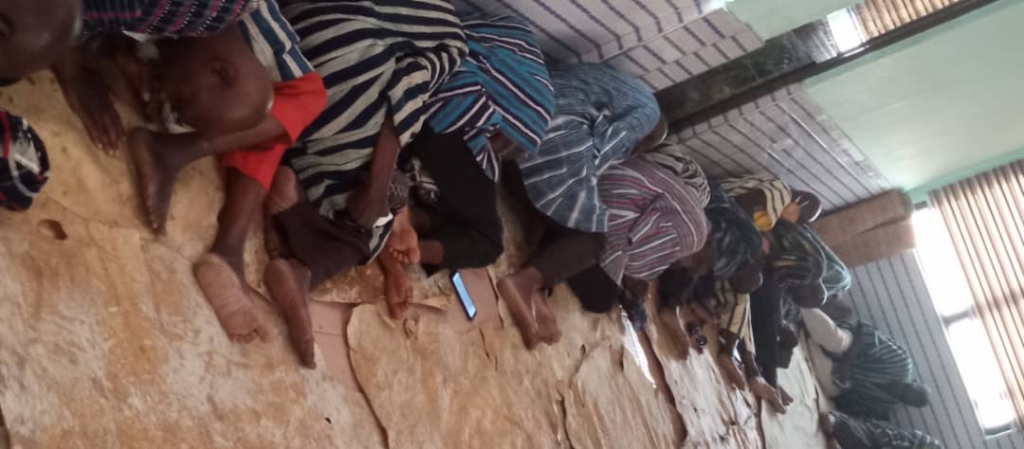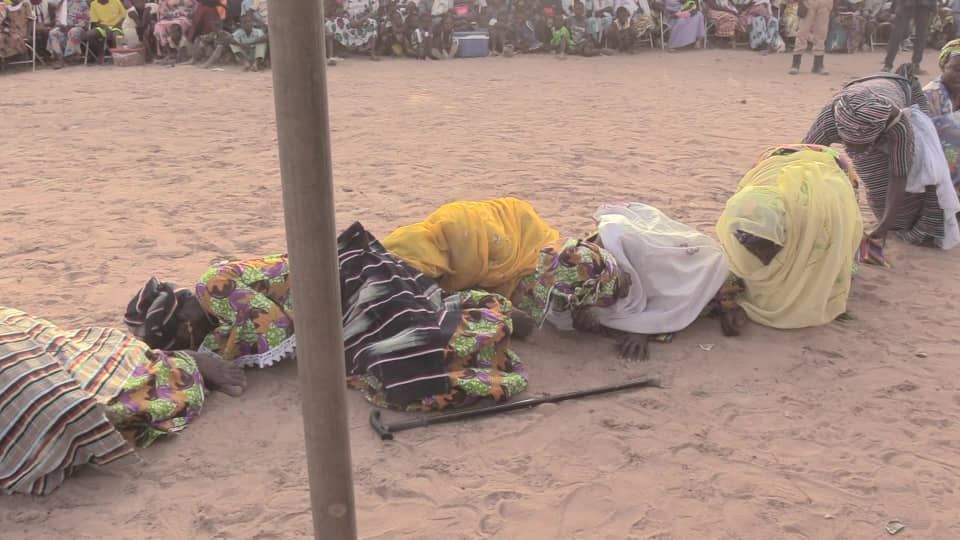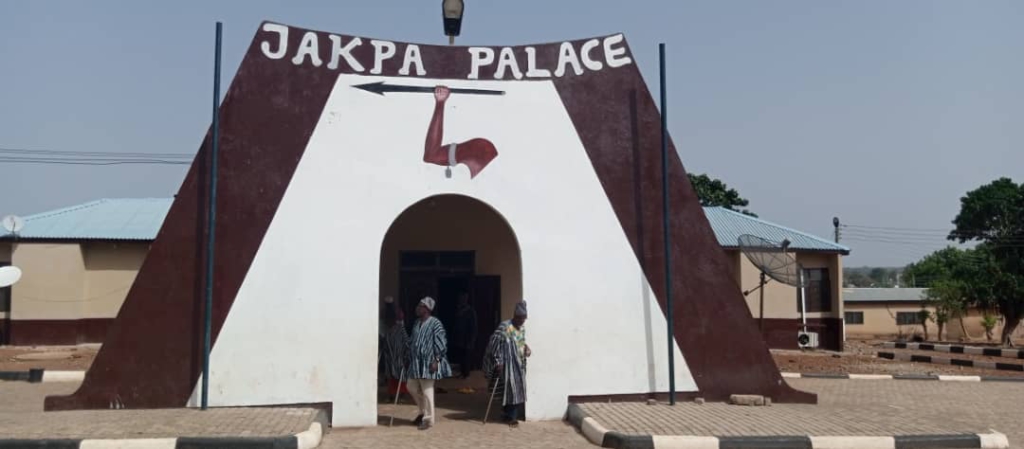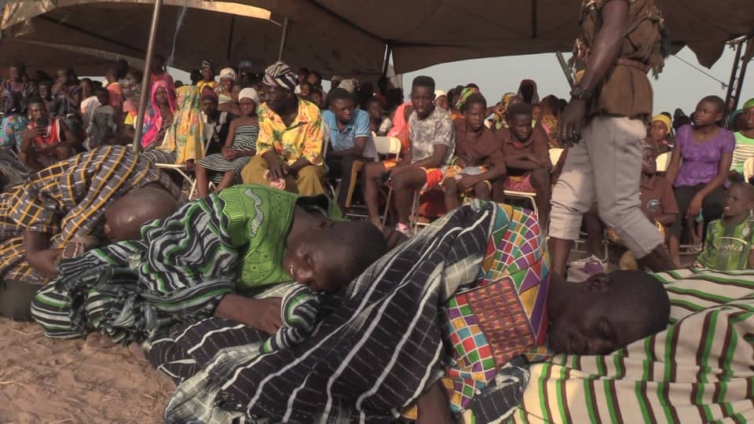The foundation and custody of rich Gonja culture and tradition at Ndewura Jakpa Palace in Damongo in the Savannah Region where greetings are considered edible, crucial, uniting, coordinating and above all, the first point of call in a speech in Gonja life is under the spotlight.
Tolodompewura Andallah Ahmed, a Sub-chief in Buipe, and an icon in Gonja culture and tradition, in an interview with JoyNews said their kind of greeting is one of the richest cultural heritage in Gonjaland and unique in the world.
"Greeting is something edible, spiritual, uniting and coordinating in Gonjaland. For example, if somebody doesn't greet you, It is like something is lost in your relationship with the person.
"The reason is that it's the first point of call of speech. To greet a person sometimes tells what kind of language the person speaks etc. If you go to the palace of a Gonja Chief and he is seated and you are a man, you sit at the right-hand side of the Chief. If you are also a woman, you sit on the left-hand side of the Chief.
"Then you now have to greet when you are greeting as a man, you lie on your left, remove your hat and point your head at the Chief and say, 'look at my head; do I have any bad intention against you; am I not your subordinate?' That's what it means.
"The greeting then goes on and the Chief responds through his linguist, he will give an appellation after the linguist response. If you are a royal, he would give you your appellation. After giving the appellation, he then asks you to sit up. When you sit up, he says, ok, put up your hats," he added.
The Sub-chief who is popularly known as Chief Monoo, explained that females who sit on the left-hand side of the Chief will also lie down on their right-hand side but do not remove their headgears because they are women.

It's not for everyone in Gonja to remove their sandals or lie down and remove their hat when they enter the Chief's Palace.
Executioners or Mboura
They are fighters and when they get to the palace, they just show a symbol of respect by squatting to a certain level and not completely. It's just to show that they protect [the chief] but at the same time, he is still their boss.
So they squat a little bit and not completely because that can disorient them as warriors and they will not be able to do what they want to do.
The men who lie on theuir left hand on the other side of the chief, also have another side that if you have to shoot a gun or you have a weapon your right hand should look more active.
Ninety per cent of people work on their right hand more than the left. The right hand should be on top so that even when you are lying down and something comes up, you can take action straight forward. That's one of the reasons for those who lie on the left hand.

Chief Ahmed indicated that in Gonja, women who are from the clan of the Executioners in the various Chief Palaces do not lie down but bow in a kneeling prostrate manner before their Chiefs and their appalations are given.
According to him, in the Jakpa's Palace, every son or daughter of Gonja who knows and understands the culture of the Kingdom, does not just sit anywhere anyhow when they are before the King or even a sub-chief.
"It's not everybody who sits at the left and right-hand side of a Gonja Chief at the same time, like the Mboura or executioners, they standby to give actions. Some of them stand behind the Chiefs and others at the other side of the Chief.
He disclosed that mallams cannot distinguish Gonja Culture or Tradition from Islamic Religion to some extent because of the history of Islam coming along with Gonja to this Kingdom.
"And so, the Mallams are seated right in front of the Yagbonwura's Palace of the Chief. When you enter and see someone seated on mats facing the King directly, those are the King's spiritual leaders (Mallams).

"They are supposed to pray before whatever they want to do and also pray to close whatever they do. So, they don't also lie down, they just come and sit," he added.
Chief Monoo intimated that, when they [mallams] enter the palace, they don't greet first, they sit and offer the prayer and after the prayer, they greet the Chief.
He said that, in the past, Chiefs who used not to pray, the mallams prayed and even fast for them. What does this kind of culture mean to Gonjas; and Chief Monoo provides the answer, " it's very very significant and important. For example, if anybody comes who is not a Gonja begins to see the difference in the greetings and styles of their Community and the Gonja Community.
The issue is that, first of all, if you walk with a Gonja and get to the Palace, immediately, they don't tell you, he knows he is a Mallam but a Gonja. So he walks straight to where the Mallams are supposed to sit.
If he is a royal, he walks straight to where the royals are supposed to sit. If he is a Chief, he walks straight and finds his way among the Chiefs and fits himself where he is supposed to sit.
Even if he is coming from a different Community all together , it tells you the specification and the richness in the whole system and everybody knows what to do.
So, immediately, the place is already organised and everybody knows that this is the Calibre of person who has been to this place.
Therefore, it's very significant to us and to everybody who wants to come and see it. By his grace, it's one of the very richest parts of Gonja culture, very significant and very unique," Tolodomperwura Andallah Ahmed insists.
As a hub of many wildlife species, the Mole National Parker certainly aides a certain part of Gonja culture and tradition. In an interview with myjoyonline, the Mole National Park Manager, Ali Mahama, says," as warriors, Gonja culture and tradition plays significant roles in preserving wildlife in the park.
Gonjas naturally have a lot of Taboos linked to Wild animals. They don't take certain wild animals spices because in certain jurisdictions , they have the believe that some of these taboos help in conservation of the particular spices within a particular area.
When you go to a Community called Jelicon in the Salwa Tuna Kalba District, the bushbark or antelope is one of their Totems .
"They don't eat it and don't also kill it", the Park manager insists.
"So when you go there, you realise that the Antelopes even walk in the Community and these animals are there.
Gonjas also protect certain areas called the sacred groups and they don't go into such areas because the sacred groups are supposed to be protected and preserved because they believe in conservation but they normally come up with certain Taboos or say a lot of stories about the area, that if you go into this particular forest you will die including alot of negative stories just because they have that idea of protecting the vegetation".
Generally, in the past, most of these animals used to be outside the park and it's also believed by the People of Gonjas that different parts of the animals could be used to enhance their powers.
"Once you have some of their body parts, you are able to perform if you go to the battle field because you are brave and able to conquer your opponent.
Some of these things make the People in the Gonja traditional area revere conservation as they always want to protect wildlife resources", Mr. Ali Mahama indicated.
Latest Stories
-
Rafatu Inusah elected onto GOC Board
2 hours -
SAMSON’S TAKE: AG okays demo, how refreshing?
3 hours -
Trump questions Putin’s desire for peace after meeting Zelensky at the Vatican
3 hours -
Legend of The Week – George Darko
4 hours -
Kounde strike wins Copa del Rey final for Barcelona
9 hours -
Is NPP crying more than the bereaved in the Chief Justice saga?
10 hours -
“Elements within NPP worked against me for supporting ‘Ken must go'” – Cynthia Morrison
11 hours -
IMF Boss commends finance minister for strong commitment to economic reform
11 hours -
Cynthia Morrison advises Ghanaian women to diversify their skills to build wealth
11 hours -
UK deports 43 immigration offenders to Ghana and Nigeria
12 hours -
Piwak Natural Health urges Akosombo victims to rebuild with new donation
12 hours -
Ghana’s Para athlete Gilbert Ampiah wins bronze at Marrakech Grand Prix 2025
12 hours -
6 dead in Adansi Dompoase crash involving VIP bus and sprinter
13 hours -
Saturday’s heavy rainstorm caused outages within our network – ECG
13 hours -
Police arrest 3 over gold robbery at Wassa Afransie
14 hours

